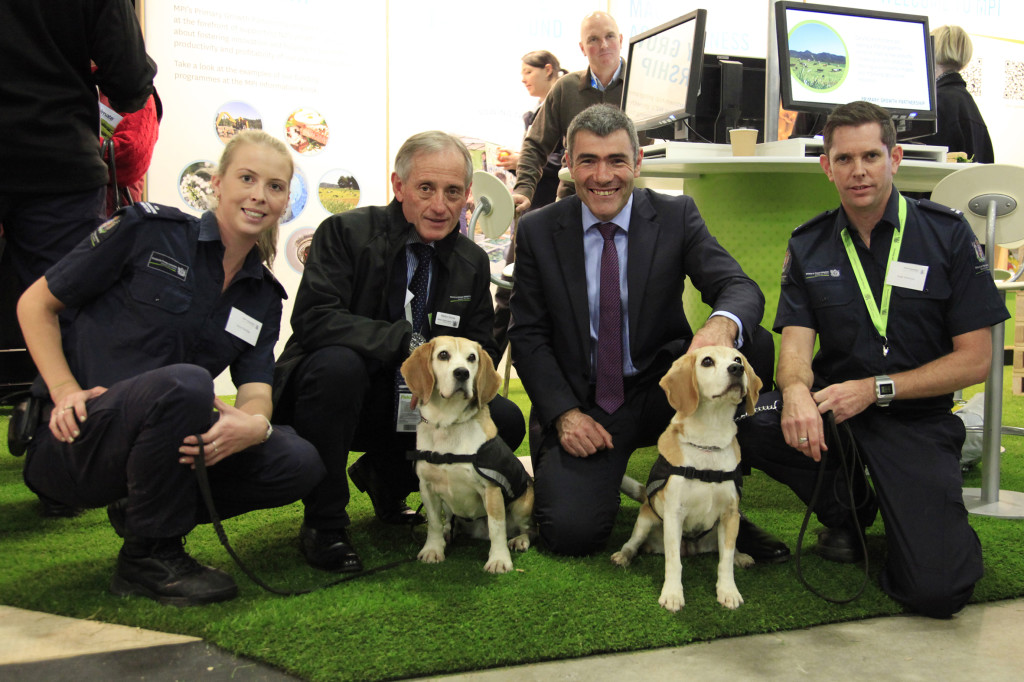Border patrol dogs on show at Fieldays
So your dog wants to work for Biosecurity New Zealand? Read here to find out how.
Quartz and Kendra are retired detector beagles and at seven and 13 years respectively these old dogs are crucial to spreading the message about New Zealand’s biosecurity systems.
The Ministry for Primary Industries (MPI) held an exhibition highlighting food security and safety at the annual Fieldays event and the canine pair were central to getting the point across.

The Ministry leads a biosecurity system that works to stop pests entering the country, identifying and eliminating pests that arrive and managing or eliminating pests that are established in New Zealand.
MPI canine manager Brett Hickman said detector dogs, handlers and inspectors are an integral part of the biosecurity system.
“The dogs are used to detect items of quarantine concern, such as undeclared agricultural products [like] food and plant products.”
The MPI’s Detector Dog Programme was established in 1995 and currently has 39 dogs.
All pups are trained from the age of one at the National Dog Training Centre at Auckland International Airport, with beagles the only breed used.
Within nine months they are ready to go to work.
“Beagles make an excellent airport dog,” said quarantine inspector Amy Oatridge.
“They’re lovely dogs.”
MPI also have a puppy fostering programme as part of their early training and there is a need for families in the Auckland area to provide rearing and socialisation.
An adoption process is also in place for retiring dogs who are guaranteed to have a great life after they are done detecting.
“The dogs work for a few years and when they retire, their handler gets first option of adopting them, then the MPI team, then the third option is to adopt them out locally,” said Hickman.
“But that hardly ever happens.”




